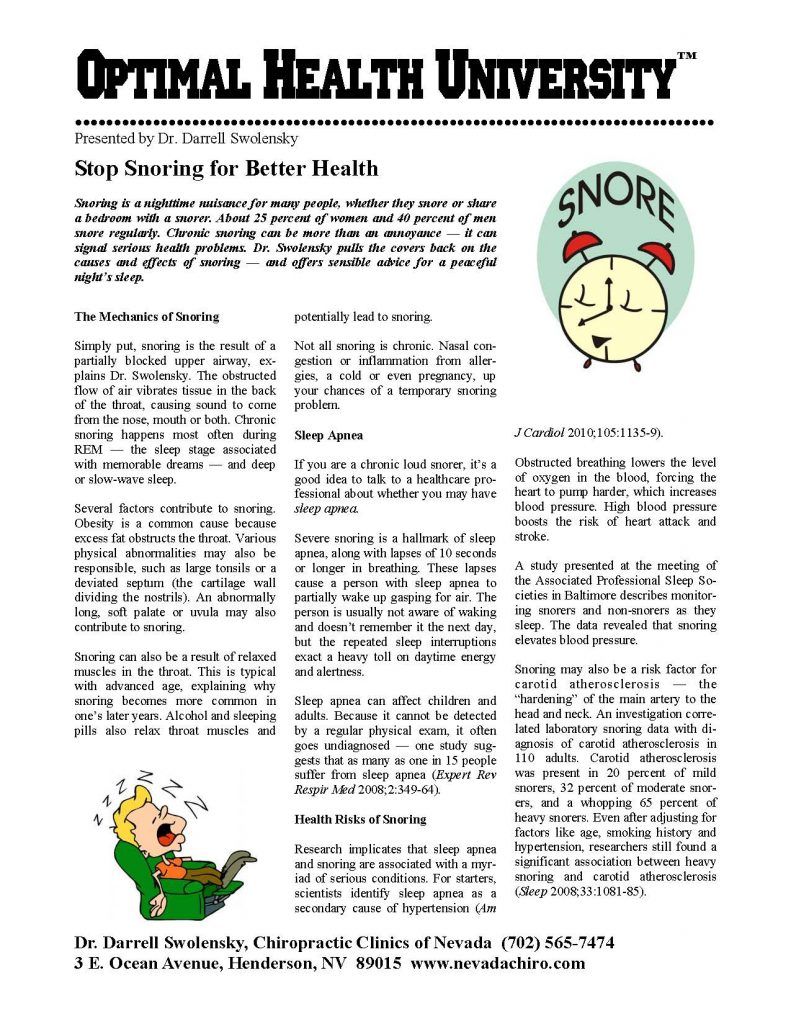Stop Snoring for Better Health
Snoring is a nighttime nuisance for many people, whether they snore or share a bedroom with a snorer. About 25 percent of women and 40 percent of men snore regularly. Chronic snoring can be more than an annoyance — it can signal serious health problems. Dr. Swolensky pulls the covers back on the causes and effects of snoring — and offers sensible advice for a peaceful night’s sleep.
The Mechanics of Snoring
Simply put, snoring is the result of a partially blocked upper airway, explains Dr. Swolensky. The obstructed flow of air vibrates tissue in the back of the throat, causing sound to come from the nose, mouth or both. Chronic snoring happens most often during REM — the sleep stage associated with memorable dreams — and deep or slow-wave sleep.

